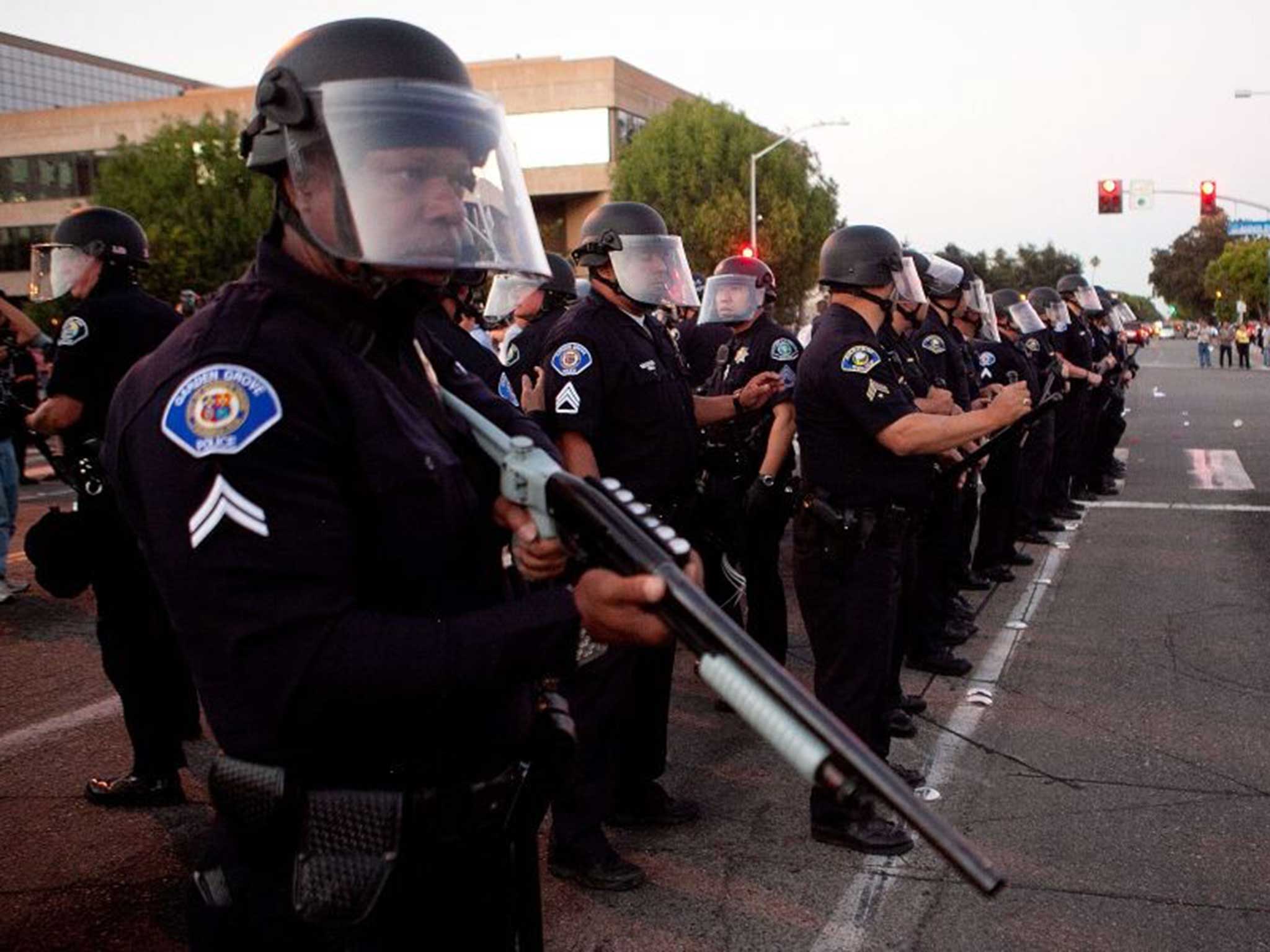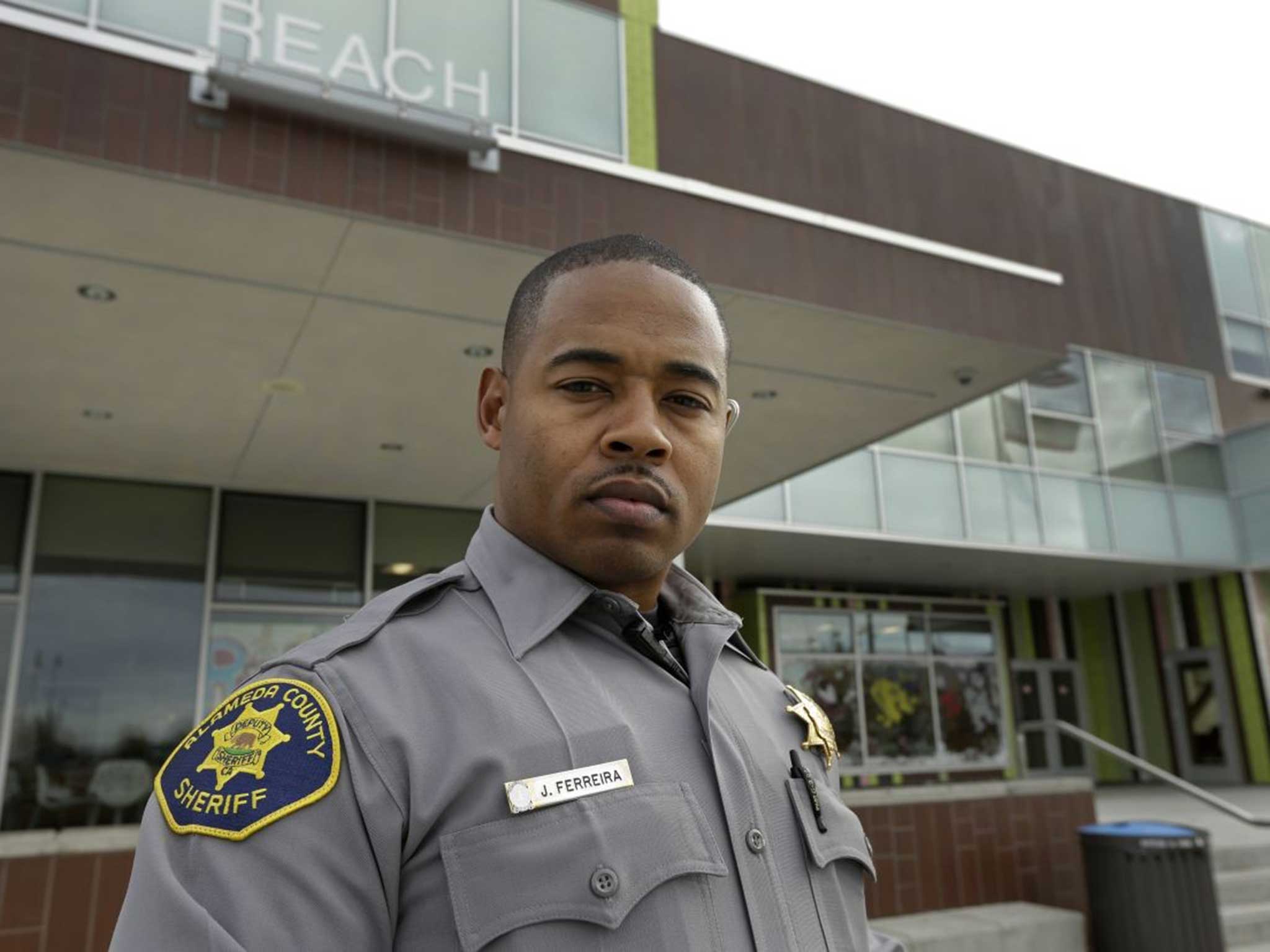The black police officers in the United States caught between community and law
African-American officers want an end to police brutality as much as anyone

Your support helps us to tell the story
From reproductive rights to climate change to Big Tech, The Independent is on the ground when the story is developing. Whether it's investigating the financials of Elon Musk's pro-Trump PAC or producing our latest documentary, 'The A Word', which shines a light on the American women fighting for reproductive rights, we know how important it is to parse out the facts from the messaging.
At such a critical moment in US history, we need reporters on the ground. Your donation allows us to keep sending journalists to speak to both sides of the story.
The Independent is trusted by Americans across the entire political spectrum. And unlike many other quality news outlets, we choose not to lock Americans out of our reporting and analysis with paywalls. We believe quality journalism should be available to everyone, paid for by those who can afford it.
Your support makes all the difference.As the US grapples with turmoil over police killings of unarmed black men, some African-American officers feel caught in the middle, they say, wondering whether the system they’re sworn to uphold is stacked against blacks.
Retired and active black officers have expressed concern about how black men are treated by the largely white police forces in the United States, an issue that has led to protests alleging police brutality. The officers say they want change just as much as anyone else, and advocate for it where they can because they, too, have something to lose.
“A lot of us have sons, and we want to make sure our colleagues are treating our young boys with dignity and respect,” said Police Lt LeRonne Armstrong, a 16-year veteran in Oakland, California.
Since the summer-time deaths of 18-year-old Michael Brown in Ferguson, Missouri, and Eric Garner, 43, who gasped “I can’t breathe” while being arrested for allegedly selling untaxed cigarettes in New York, thousands of people have taken to the streets to protest against their deaths.

Grand jury decisions not to indict two white police officers over their deaths have provoked further protests in recent weeks. Task forces and commissions around the nation are being formed to study ways to improve relations between police forces and minorities.
There were an estimated 55,267 African-American officers in local police departments – comprising nearly 12 per cent of the total – in 2007, the latest information available from the US Justice Department. There were an additional 15,500 black officers in county sheriffs’ departments, or about 9 per cent of the total number of sworn personnel.
Jorge “Jinho” Ferreira feels the tension between being black and carrying a badge as a sheriff’s deputy every day in California.
“I feel like you have to prove yourself on every level,” said Mr Ferreira, 39, who patrols an area east of San Francisco. “You have to prove yourself to the black community, you have to prove yourself to all of your co-workers, you have to prove yourself to society.”
Black officers are sometimes called “traitors to our community, in spite of the fact that we sympathise or we agree with the anger that our community holds, because we feel that same anger,” said Noel Leader, a retired New York City Police sergeant who in 1995 co-founded an advocacy group, 100 Blacks In Law Enforcement Who Care.
Black officers point out that they contend with many of the same racial issues as black civilians, such as stereotypes, racism on the job and even confrontations with the police. Black plainclothes or undercover police officers have been shot by their white counterparts, as in the 2009 death of New York Police Department Officer Omar Edwards, who was killed while he was chasing a man who had broken into his car.
Kevin Minor, a recruitment officer for the St Louis County Police in Missouri, remembers being followed around a discount store by a security officer while trying to shop. “If that’s what makes him feel like he’s doing his job – oh well,” Mr Minor said. “Because I know why I’m there, and I’m going to leave there with what I’m going to buy and that’s it.”
While acknowledging the rage felt by communities that feel persecuted by the police, some of the black officers were not quick to blame race for some deadly encounters.
“I believe that some of these incidents could have been prevented if you comply with the law,” one officer said. “If someone says ‘Put your hands up’, put your hands up.”
Black officers say they can help quell some of the hostility between police and the communities they patrol. “I think law enforcement leaders have to recognise minority officers can be that bridge to build trust because they understand where the mistrust comes from,” Mr Armstrong said.
AP
Join our commenting forum
Join thought-provoking conversations, follow other Independent readers and see their replies
Comments